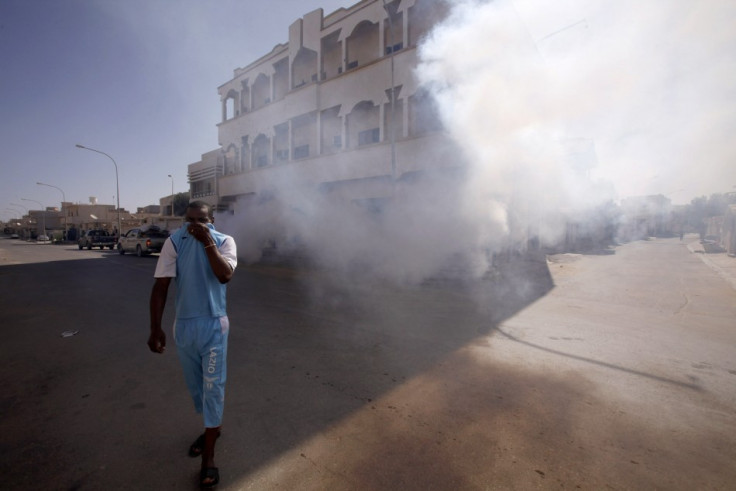Tombs of Muammar Gaddafi’s Family Desecrated in Sirte

Tombs of the family of dead Libyan leader Muammar Gaddafi have been desecrated, an Algerian newspaper has reported, after a gang attacked a Sirte cemetery of the Gadafa tribe.
According to the newspaper, the group belongs to a jihadist movement with close links to al-Qaida.
Four tombs were said to have been dug up and destroyed, including those of Gaddafi's mother, uncle and two other relatives and the bones were removed and burned.
The group who committed the attack reportedly wrote on the walls, "Committee of demolition of statues".
The move has provoked anger in Sirte as the destruction of tombs, whether Muslim or not, is prohibited in Islam.
Tensions and resentment in the colonel's hometown are running high as eight months of civil war have taken their toll on citizens.
The city has been severely affected by the conflict, and most buildings, including banks, have been destroyed during the war which culminated in Gaddafi's death.
The city also still hosts Gaddafi supporters who were shocked by the abuse their former leader suffered after his capture, and the way his body was put on public display for days.
As a consequence, tensions between inhabitants of Sirte and Misrata, a stronghold of the revolution and the town where Gaddafi's body was put on display, now run high.
Also, hundreds of family still have nowhere to go and many have accused National Transitional Council fighters of looting and burning their homes or businesses, or even targeting them directly, by demanding money or taking their possessions.
Rights organisations have called on the NTC to ensure that human and civil rights are respected, but it will take some time before tensions can be brushed aside.
The gap between the leadership in Tripoli and the fighters located in more remote parts of the country is also still important, making it hard for the NTC to control what the ex-rebels are doing.
Fighters are also still armed, and sites where weapons hidden by the Gaddafi regime were discovered have been looted by fighters and civilians alike, so distrust and insecurity also remain high.
The civil war officially ended with the death of Gaddafi, but the hatred that has divided Libya for the past eight months linger and tensions now risk being heightened by the socio-economic issues brought about by the conflict, leading to new fears for the future of the country and its citizens.
© Copyright IBTimes 2025. All rights reserved.





















